I remember the first CBD product I ever saw in a grocery store. Surprisingly, it wasn't a CBD chocolate bar that caught my eye, but something even sweeter. As I was preparing to leave Hawaii, I bought a stick of 10mg CBD honey to help me sleep on the flight.
A 10mg edible had knocked me on my ass the year before, so surely this would do the same thing a year later. Flight rolls around, I consume the honey a half hour before boarding, and absolutely nothing out-of-the-ordinary happens for the rest of the day.
I felt nothing.
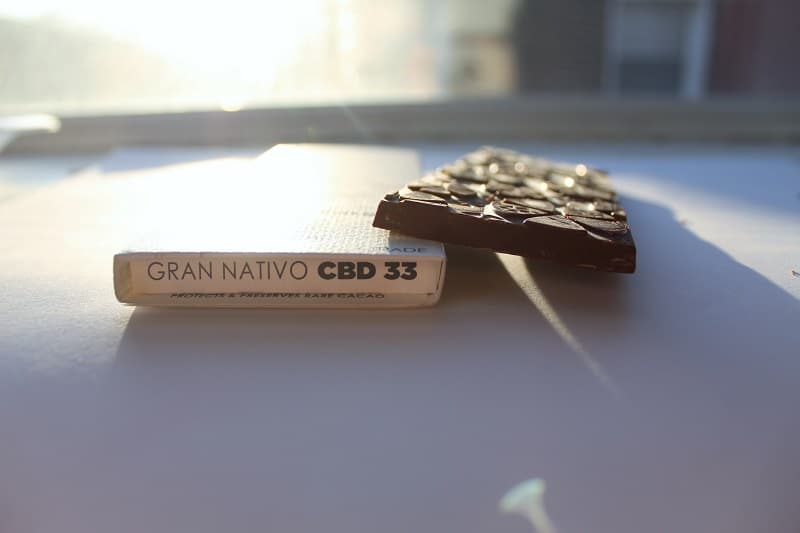
Where was the high? I fell asleep within an hour the last time! Thus began my introduction to cannabis as WAY more than just THC. In the four years since, I've gone through some personal health issues which forced me to step back from my own preconceptions about cannabis.
I've educated myself, and I continue to educate myself, and CBD chocolates (& other edibles) have come to play a large role in my recovery. From back pain to anxiety and depression, CBD and other cannabinoids have a lot of potential as a personalized herbal remedy.
I wanted to write this post because, as a consumer, I wanted to understand why something that's supposedly been federally legalized is still such a grey area, and what the barriers are for more people to get involved.
There are so many possibilities for craft chocolate companies to produce hemp chocolate with equitable roots. This will hopefully involve partnering with companies in other industries to bring a higher-quality product to market overall, and I say we start with cannabis chocolates.
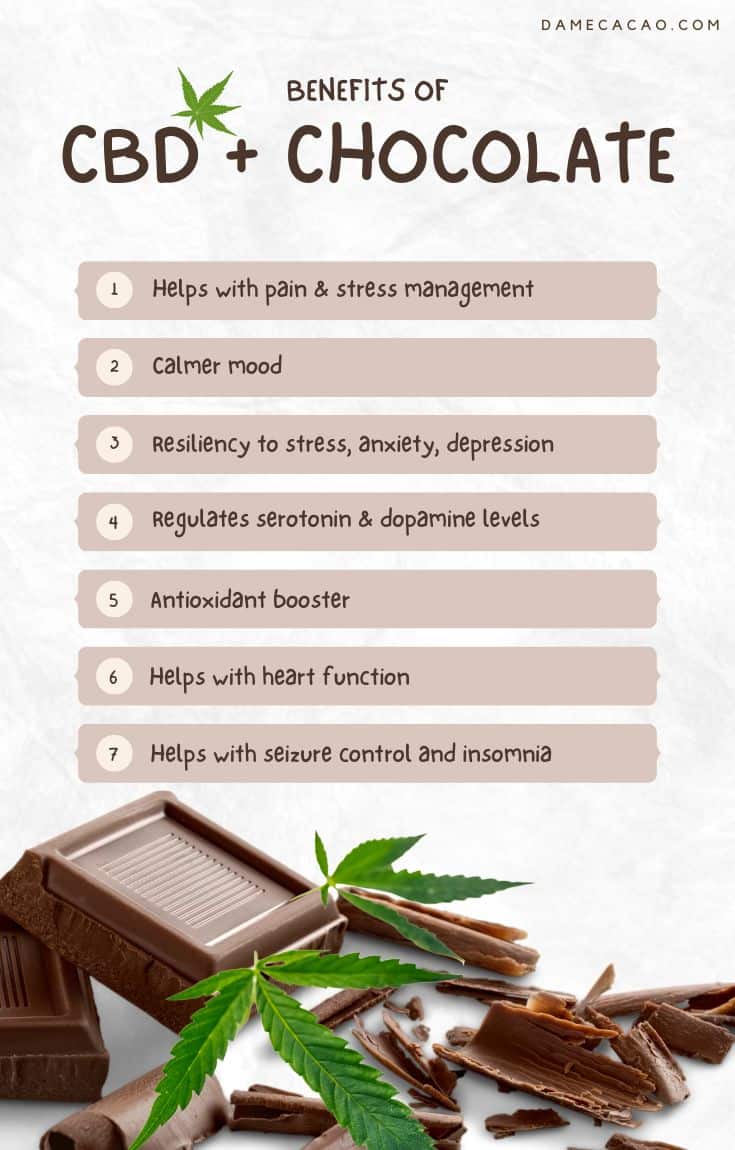
Jump To
What is CBD? (& What Are CBD Edibles?)
Just like with chocolate & cacao, there are so many misconceptions and there is so much to learn about about cannabis & CBD. You could easily write a book on CBD alone, but I'll try to stay on topic— CBD, which is short for cannabidiol, is a phytocannabinoid discovered in the mid-20th century.
It's one of over 100 identified cannabinoids found naturally in cannabis plants. The prefix "phyto-" simply means that these cannabinoids are derived from plant material, and that difference is important, because we humans actually produce and use cannabinoids every day in our own bodies.
We call ours endocannabinoids, and different types of them are found throughout the body. They work within the endocannabinoid system of our central nervous system, regulating our daily functioning and helping us heal.
On the other hand, CBD is extracted from cannabis plants, and in most countries its extraction is limited to hemp. For all intents and purposes, the hemp plant is industrial cannabis. It's actually a variety of cannabis that's been highly cultivated over the years due to its lower THC and higher CBD concentrations, as well as its potential as a nutritional food and strong cloth fiber.
Our understanding of endocannabinoids is still forming, but phytocannabinoids such as CBD act upon our systems just like they do. One day we may be able to compare them all one-to-one, but for now we'll just have to work within the existing science, which is still quite young.
In fact it was only in the early 90's that the first endocannabinoid was identified, and it turned out to be anandamide, the very neurotransmitter whose receptors are affected by CBD. Even though the name cannabidiol inextricably links CBD with cannabis (and its own turbulent history), it's become popular over the last few years. Why is that?
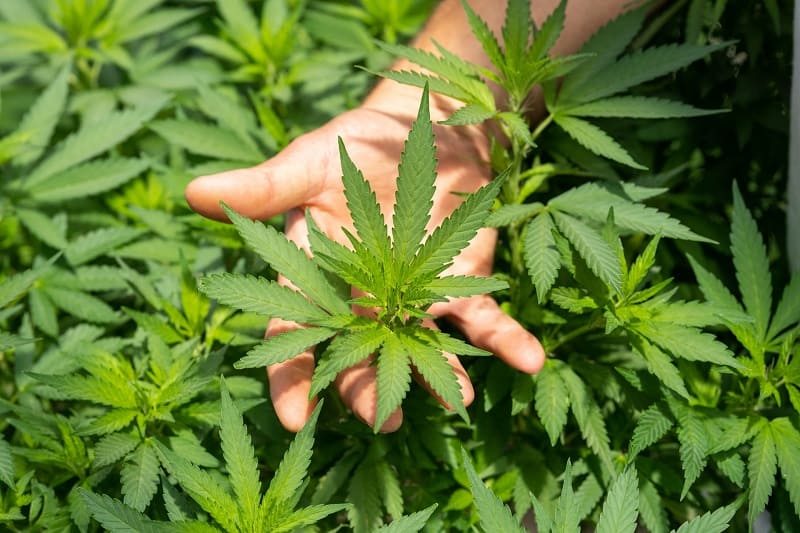
What Does CBD Do?
CBD is used for pain & stress management, anxiety, seizure control, depression, and insomnia. It treats these issues by working within your body's endocannabinoid system, as described above, causing calming anti-inflammatory and analgesic effects.
When you consume chocolate with CBD, endocannabinoid receptors are activated while anandamide levels increase. And don't worry— cannabidiol doesn't have any psychoactive effects, whether it's in chocolate, capsules, vapes, gummies, or anything else you can think of.
After consuming CBD chocolates, the calming effects will begin anywhere from 20 minutes to 2 hours after ingestion, occurring more quickly on an empty or near-empty stomach.
I take CBD cannabis chocolate for pain, as well as anxiety when it pops up, and I've found it to be empowering. I'm not worried I'm causing ulcers with an NSAID or becoming addicted to pain killers or overindulging in alcohol; I'm taking an herbal analgesic and sleep aide, and my doctors approve.
Hemp CBD Vs. Marijuana CBD
This concept confused me so much when I was first learning about CBD, so I want to clear a few things up. To start, the word "cannabis" refers to a genus of flowering plants native to Central and South Asia, with three generally recognized species: Cannabis sativa, Cannabis indica, and Cannabis ruderalis.
"Marijuana" is 1950's slang for cannabis, specifically consumed as a recreational drug. The strain of cannabis referred to as "hemp" is merely the low THC/high CBD variety which has come to be industrially cultivated.
Therefore when comparing hemp CBD vs. marijuana CBD, you're merely comparing the industrially-accepted strain of cannabis to all others. The importance lies in the fact that only one of these is a legal source of CBD (at least in the US).
In line with the country's 2018 Farm Bill, hemp was officially removed from the list of Schedule I Substances, as long as it contains less than 0.3% THC. Most marijuana strains naturally contains lower levels of CBD than hemp, so it makes sense that most CBD would be derived from it.
Some cannabis brands just choose to produce full spectrum hemp extract rather than refine it into pure CDB. That being said, some strains of marijuana have been specially cultivated to contain higher levels of CBD than others.
These specialty strains are typically what's being used to produce CBD oil derived from marijuana, which is something you could buy at retail shops in states where recreational marijuana use is legal. State governments still have the final say on how exactly these CBD products may be cultivated, manufactured, and purchased within their state lines.
According to this post, 8 states currently have some level of restriction on CBD itself and/or cultivation of the raw materials. Most of these restrictions are just reducing the acceptable level of THC to absolutely zero.
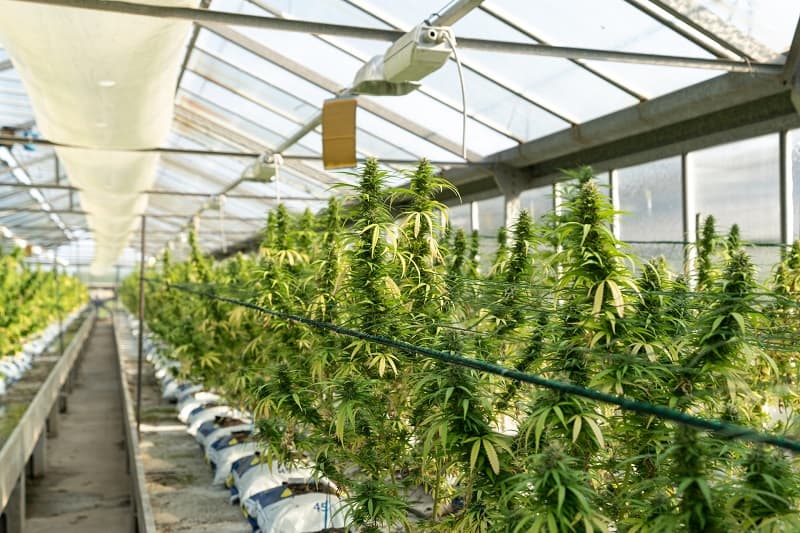
Why Take CBD in Chocolate?
So what do CBD chocolate bars, or hemp chocolate, do for your body?
There are a multitude of reasons to take CBD in chocolate form, one of which is the vast potential for deliciousness. Since CBD, like most other cannabis products, contains some amount of terpenes, it's going to have some level of that signature bitter herb undertone most people associate with marijuana.
Chocolate's inherently strong flavor will both complement and cover the terpene-rich flavor of high-quality CBD. A secondary, but still quite valid reason, is that chocolate is naturally a high fat food. CBD is fat-soluble, meaning that it must be extracted into a lipid in order to be safely stored.
Most of the time this is a coconut oil, and because you need to ingest so little of the oil for it to have an effect, you can easily make micro-dosed chocolates which allow you to customize your medicine as needed.
For those who need to enhance the effectiveness of their dose, I'd highly recommend adding a few grams of THC to your nightly regimen. In fact, you can think of CBD like you'd think of antioxidants or caffeine in chocolate.
CBD can be isolated and utilized on its own, but it's most effective within the context of the whole plant from which it's derived. In my interview with author Marcos Patchett we get more in-depth into his fascinating theory of contextual consumption.
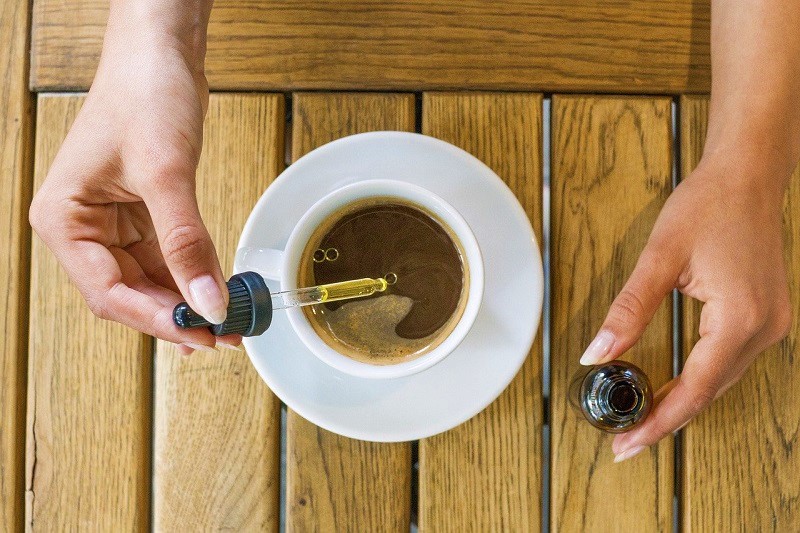
The theory basically posits that unobserved micro-reactions between hundreds of chemicals causes an increase in botanicals' potency. The same could be said of CBD and whole cannabis.
While a full-spectrum CBD oil is the best option if you only want to consume cannabidiol, the addition of other parts of the cannabis plant can amplify the healing power of the CBD. As for CBD chocolate bar effects, although CBD won’t get you high by itself, it influences the way that THC interacts with specific receptors in your endocannabinoid system.
Therefore it can influence how & how quickly a cannabis product will affect you, which is why many high-dose CBD chocolates may also contain 2mg of TCH (brands will always explicitly say if a product contains THC).
The strong flavor of even a plain chocolate can handle the strong flavor of the various components of cannabis in a way that other edibles just can't. The CBD industry and cannabis as a whole are not without their own issues, a huge one of which is industrial regulation and public misinformation.
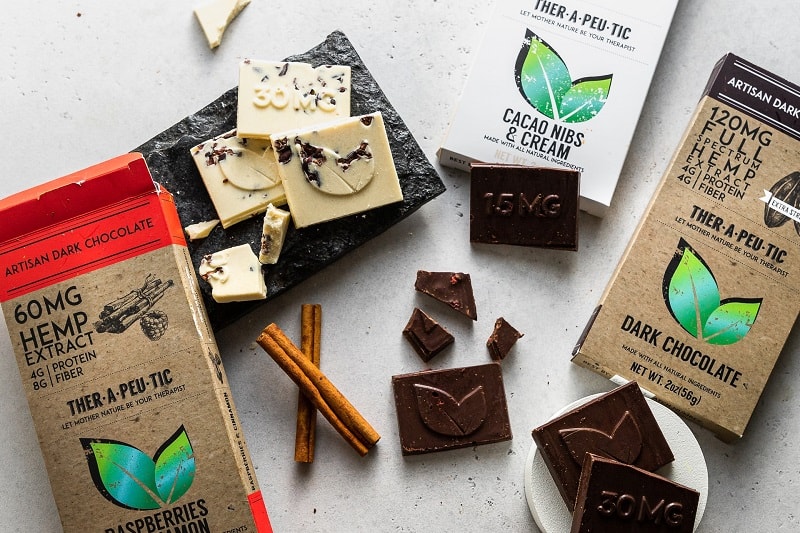
Regulation of CBD in Chocolate (Legality)
Certainly not exclusive to CBD, the entire cannabis industry is sorely underregulated at the same time as its legal status is shakily defined. Unlike with coffee beans or even beer and wine, people don't tend to have much basic cannabis knowledge before they begin buying and using CBD.
Many companies can easily and legally exploit that lack of knowledge, for example passing off plain hemp oil as pure CBD oil.
According to this statement from the FDA's official web page, "FDA continues to be concerned at the proliferation of products asserting to contain CBD that are marketed for therapeutic or medical uses although they have not been approved by FDA... Selling unapproved products with unsubstantiated therapeutic claims is not only a violation of the law, but also can put patients at risk, as these products have not been proven to be safe or effective."
The laws as written limit the extraction of legal, hemp-derived CBD to specific parts of one lone cannabis strain, an extraction process which is difficult to prove (or disprove), and less than 0.3% THC content by weight.
Other than the anti-seizure drug Epidiolex, no CBD products have ever been approved by the FDA. The above snippet basically means that the FDA isn't regulating— sampling, testing, vetting— any of the CBD out there on the market, but unless your customers start getting sick, they're also probably not going to arrest you for selling it.
Honestly, I just think the whole idea of regulation is just such a headache that the government is procrastinating. All of the age restrictions you see on sites are either self-imposed by those companies or due to further restrictions at the state level, because it's still sort of the wild wild west in the cannabis industry.
Just starting a business selling CBD anything involves copious paperwork (at least here in the US) and the ability to carefully demonstrate to the government that your CBD only comes from certified hemp sources.
Providing ongoing proof of provenance is a near full-time job for someone at most CBD-centric businesses, so most of them focus only on CBD products. This is why, despite the booming interest since federal legalization, you're limited in where & in what forms you can purchase CBD edibles.

How To Dose CBD Chocolates
How you dose CBD chocolate bars depends completely upon why you're taking it. First of all, always be sure that your chosen products clearly say the mg of CBD inside rather than the mg of hemp extract, which could have any percentage of CBD inside or none at all.
If the CBD chocolate brands you're looking at don't share Certificates of Analysis (COA) on their site somewhere, I'd be inclined to stay away from them. These COAs tell a potential consumer all about the CBD brand used in that product, and you can look through it yourself to confirm 1) that the THC level is below the legal limit and that 2) it passed inspection for levels of pesticides and heavy metals.
Beyond this is of course the quality & taste of the chocolate, but since CBD is a form of medicine, it's important to ensure that the therapeutically relevant portion is legit. But if you already have a CBD dark chocolate or milk chocolate on hand, then you should start by portioning off a chunk containing 10mg of CBD (the package should tell you how much and how large one serving size is).
Allow the piece of CBD chocolate to melt beneath your tongue, crossing the sublingual absorption method of a CBD tincture with the enjoyment of a piece of fine chocolate. By letting the cocoa butter of the chocolate to melt under your tongue, you're slowly releasing the CBD into your system.
Try this for at least three days in a row, at the same time each day. If you don't feel any relief, up the dosage by 5mg every three days, up to 50mg per day. The ability to cleanly cut just a biiiiiit more or less is also why I prefer a chocolate over a CBD gummy!
You'll see many so-called "luxury" chocolates which also include botanicals like adaptogens or nootropics, while others will add 2mg of THC relative to a high dose of CBD, usually 25mg or 50mg. So why only 2mg of THC? Well, 2mg is the minimum amount of THC necessary to produce any level of psychoactive effects.
So as long as your dose maxes out at 2mg, you can still feel the augmenting effect of mixing cannabinoids without feeling at all "high." So if you're in a state with legal recreational cannabis (or if you have your med card), I'd highly recommend adding 1mg-2mg of THC to your CBD dose.
Just imagine breaking off some of your favorite organic dark chocolate bar with sea salt, and it counts as your medicine. As always, you should consult with your doctor before adding in something like CBD or THC, and consider asking them about getting a medical marijuana license for your state.
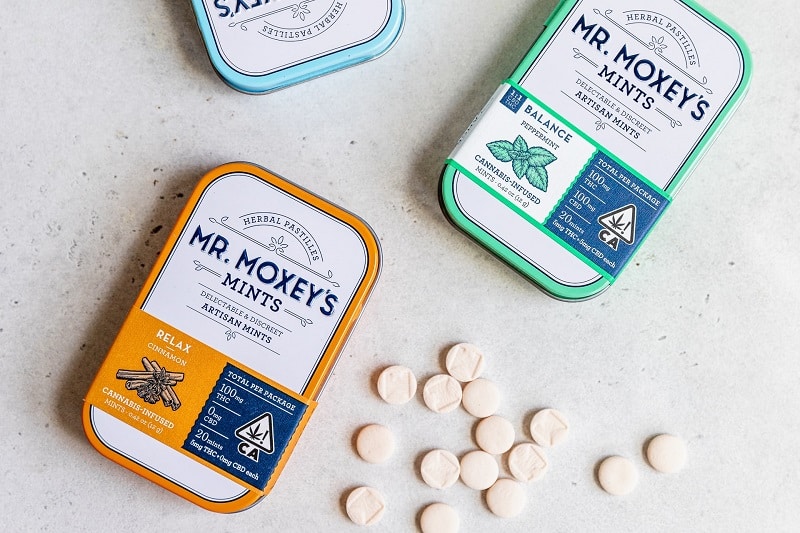
CBD Chocolate Bars & Brands
I can't just write an article on CBD chocolate and not get into the craft chocolate segment. Craft is what got me into the industry in the first place, and it remains my favorite genre therein. Recently I've seen a number of brands calling their products "CBD craft chocolates," but most of that ended up being marketing prose.
In the end, the only truly 'craft' chocolates with CBD will be ones made in (relatively) small batches with ethically-sourced, well-processed cacao & equally high quality CBD isolate. Casa Chocolate in Texas is one such company, which uses a rotating number of cacao origins to offer customizable milk or dark chocolate bars with CBD.
On the other side of the Atlantic Ocean is UK-based Solkiki Chocolate Maker, a fully vegan company which has been making delicious craft chocolate since 2007, and now offers two separate full spectrum CBD bars made in collaboration with a local CBD brand.
Back here in the States is Colorado's own Moksha Craft Chocolate, a young company with direct-sourcing ties in Peru and a locational "in" with some of the best CBD producers in the country.
All in all, this segment of the industry walks a fine line. CBD has entered the market as a premium product, which is exactly what craft chocolate is, there bringing the two together has caused prices to explode.
On the other hand, even when using cheap ingredients there are dozens of companies producing 10mg edibles they sell for $2 a piece. Who's to say that quality chocolate isn't worth an extra dollar a piece, when you're already hemorrhaging cash to buy your medicine?
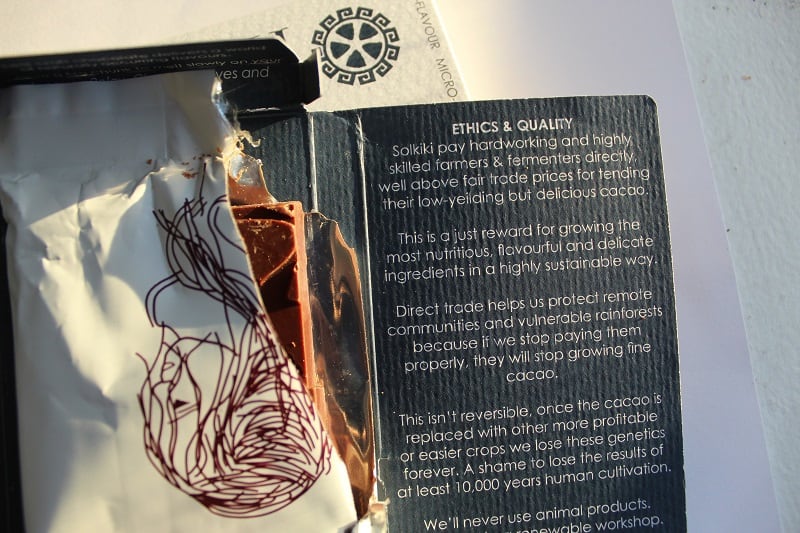
Best CBD Chocolate Brands
There are a ton of CBD-infused chocolates out there, and you'll get an overwhelming number of options when searching on the open market of the internet. Unfortunately, most of those options are made with bad-tasting low-quality chocolate.
One well-known brand's chocolate ingredients are: Sugar, Hardened Palm Kernel Oil, Low-Fat Cacao Powder, Dextrose, Emulsifier (E322: SOYA Lecithin), and Vanilla* Madagascar; yet all people see is the description of "Fair trade chocolate sourced. Gluten-Free. Non-GMO chocolate."
Even Incredibles, whose CBN gummies are my go-to at night, uses chocolate coating as the base for their bars rather than a real chocolate. But another issue with chocolate & CBD is the THC content. You'll see lots of products online that contain THC, though none of those are sales pages.
In fact, consider yourself warned that the only places you can order THC-containing products online is from a dispensary located in a state where recreational marijuana is legal, and you're placing an order for pickup.
No THC products can be (legally) mailed within the US, and all dispensaries are required to check ID and collect payment in cash/cryptocurrency (due to federal banking regulations).
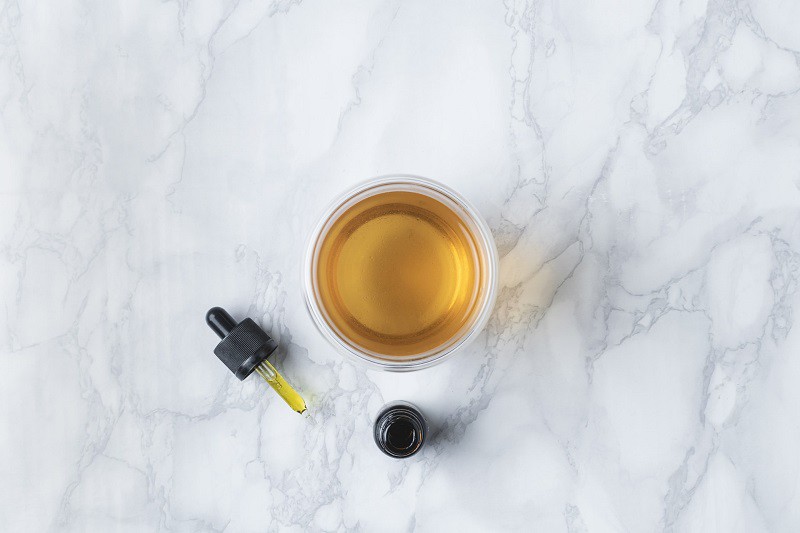
Despite restrictions, dozens of companies are making their own CBD chocolate bar in the US alone. So here are my picks for the best CBD chocolate brands in the US:
Grön CBD Chocolate: while the company also makes THC-infused bars, theirs was one of the first CBD dark chocolates I ever tried and is still one of the better ones. Most of their bars seem to be made with cacao from Madagascar, and they have lots of high-dose options.
Their products are not bean to bar, but the smaller packs are low dose enough that you could accidentally eat half of one and not worry (not that I'm totally speaking from experience or anything).
Gataka Wellness: another young company using higher quality cacao is Gataka, which cites Ecuador's own Camino Verde, via Meridian Cacao, as the source for the cacao used in their bars.
They call themselves craft chocolate makers, though it's unclear if they're bean to bar; what we do know is that they use Colorado-grown hemp and seem to focus on CBD over THC. I tried their chocolates over the summer and quite enjoyed it, as it's very fudgy & heavy on the cocoa notes.
For those living outside of North America, Solkiki Chocolate is a great option for CBD chocolate in the UK, and over in Hong Kong is Conspiracy Chocolate, which just launched their CBD dark chocolate bar. An alternative, if you love chocolate but don't have the cash for specialty CBD products, is to DIY some CBD truffles.
You could do this by buying some high quality chocolate of your own and CBD oil from a trusted source (preferably prepared with coconut/ MCT oil), and make & dose your own CBD chocolate truffles. Cannabis oil extraction is another option, for the adventurous.
But my personal favorite CBD has been one I bought from my local dispensary: a 45mg capsule that helps me sleep, along with 10-20mg of TCH, if needed. As mentioned above, all cannabinoids will be more effective when consumed together.
I can only hope that a few years from now, with more research into the usefulness of all cannabinoids (CBN, THC, terpenes, etc.) for various ailments, it will be easier to find the medicines people need and the answers they want.
FAQ About CBD Chocolate
CBD is temperature-sensitive, and should be stored at room temperature out of direct sunlight. For cooking with CBD, you shouldn't heat it above 300°F/150°C, as any temperature above that can degrade the quality of the CBD, so I recommend starting with a cup of CBD hot chocolate, like the one to which I add my daily collagen.
This is a complex question. CBD derived from hemp, a specific low-THC strain of cannabis, is federally legal in all US states and territories. Elsewhere, I'm not sure, but a few US states do have further restrictions (generally reducing the maximum THC content to 0%), most notably Idaho and South Dakota.
Much of the expense of CBD chocolate comes about due to the cost of the CBD itself. Startups often need to jack up the price in the beginning to cover lab testing, sourcing verification, or even the expense of extracting their own CBD. There will always be people looking for the best "deal" on whatever they're in the market for, which is how the cheapest CBD chocolates come to market and unfortunately seem to thrive. But "cheap" isn't a word that should be attributed to either quality chocolate or quality CBD/cannabis products. They are not cheap, and with relatively lax regulation, I wouldn't trust anything cheap, anyway. The cost of CBD chocolate should be in-line with both the quality of the chocolate and that of the CBD used, both of which will be relatively expensive compared to a standard Hershey's bar.
You MUST do your research. Unless you produced it yourself, there's no 100% perfect way to known if a CBD edible is safe to consumer. Check the brand's website, reviews, and 3rd party testing results, and ask around at a local marijuana dispensary, if possible.
From my personal experience, you feel more relaxed, more chill. You're not as aware of the relaxed feeling as you are with THC, but it's like a blanket of calm. To put it in a more common frame, CBD vs alcohol would come down to the slight fear of being out of control that I associate with consuming alcohol. You may initially interpret it as feeling relaxed or less inhibited, but if you dig deeper there's this "drugged" feeling I associate with alcohol that just isn't present with CBD.
Always go low and slow. Start with 10mg a day either in the morning or night, and sustain that dosage for three days. If you notice no difference, up the dosage by 5mg every three days, up to 50mg a day. If you notice no improvement at that point, you may be taking low quality or misrepresented CDB.
As states above, start low and slow (as you'll often hear), and stay at the same dose for at least three days before increasing by 5mg every few days until you feel like that specific dosage is having the desired effect. This is my main reason for taking CBD, and through working with my doctor we found that 40-50mg a day is good for me, but I also take THC, which affects my personal dosage.
CBD is a type of cannabinoid. So while CBD is a cannabinoid, not all cannabinoids are CBD. Cannabinoids can also be distinguished as either endocannabinoids (mammal origin) or phytocannabinoids (plant origin). Some other cannabinoids include THC and CBN.
Nope! You just can't.
Yes. If you feel like your usual dosage isn't working as well anymore, you can try ramping it up by 5mg.
Yes and no. If you're taking a pure CBD with absolutely zero THC, you'll pass no problem. But if enough THC is present in your system, even if it was just in the CBD you take, it will show up on a drug test. This means that in very rare cases, taking CBD may result in a positive drug test. But beyond this, CBD chocolates may not pass a drug screening of their own, if tested directly.
Chocolate actually interferes with materials used to test for the presence of classified drugs like cannabis (or cocaine or heroin, etc.), meaning that all chocolate has the chance of testing positive for cannabis, whether it contains any or not. In 2020, an American chocolate maker was actually imprisoned in Costa Rica on suspected drug smuggling charges because the chocolate he brought for a trade show was randomly checked and tested positive for drugs, despite containing only cane sugar & cacao (which naturally contains a small amount of phytocannabinoids).
What this means is that any & all cannabis-derived products are hard to test for and verify the presence of once a chocolate has been produced. This makes transparency and sourcing even more important in CBD chocolates (& any other chocolate-cannabis combo)
I've written most of this article in the hours after taking a CBD capsule or sucking on some pieces of CBD chocolate. I'm not "high." I'm not falling asleep or talking crazy or running around naked; I'm just not as acutely aware of the pain between my shoulder blades and in my lower back, nor am I as anxious about all the work I need to get done in the next two hours. I'm just focused, and I'm feeling more like myself than I have in years. If this sounds appealing to you, then consider giving CBD a try. I know it changed my life.
If this article about CBD chocolate has taught you anything or if you have any questions, please drop a comment or send me an email!

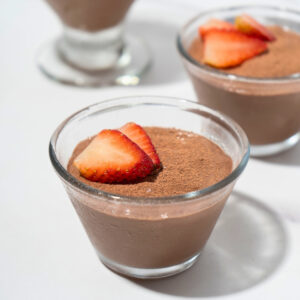
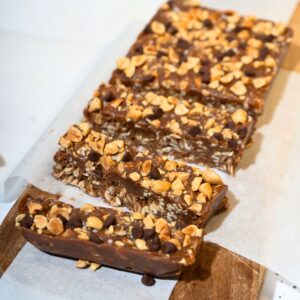
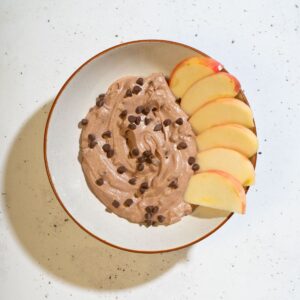
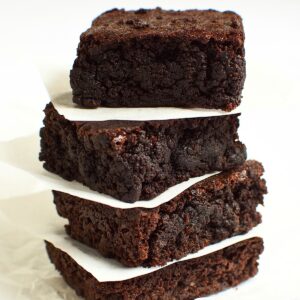
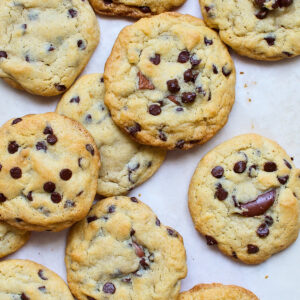
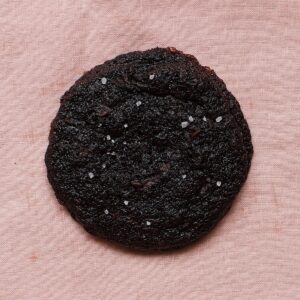
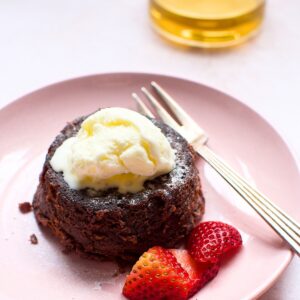
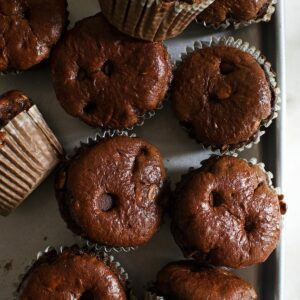
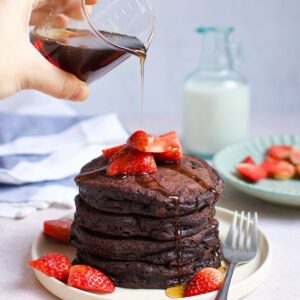
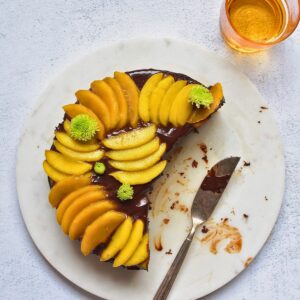
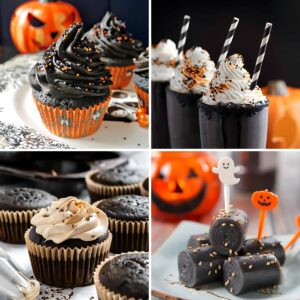
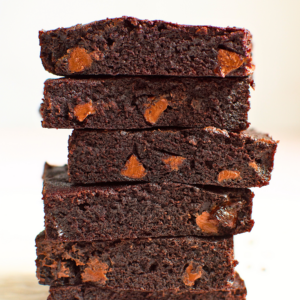
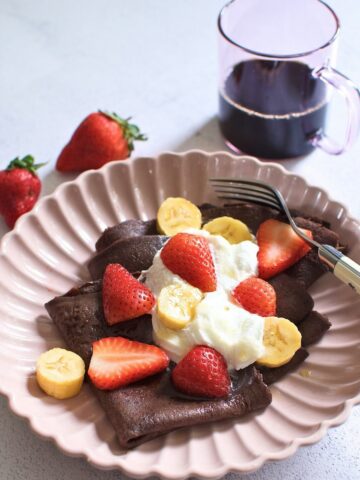
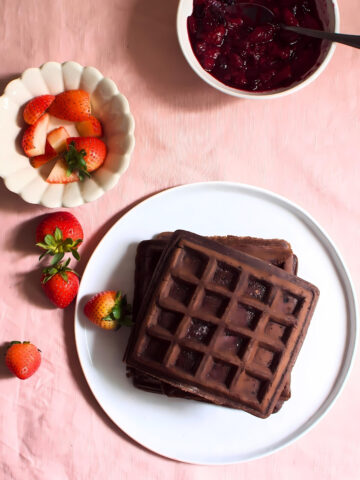
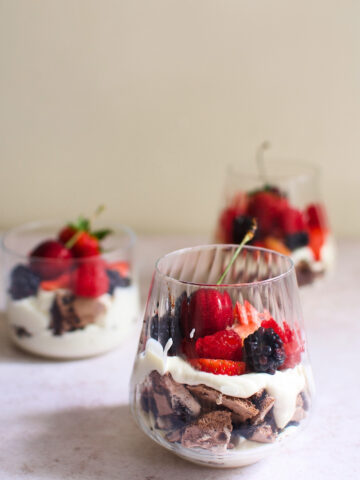
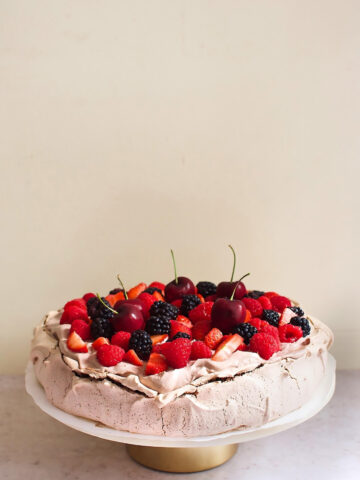
Michel Clerk
Delicious and informative! I'm glad it also provides valuable insights into different brands and how CBD works.
Max
Thank you for the kind words, Michel!
Top
CBD chocolate is the best. I mean I've been consuming it from the past 6 months and it has helped me with my anxiety and reducing stress. It has totally been worth it. You can also try CBD edibles online from Canada, if they're not available in your state.
Max
Thanks for the tip!
David Tucker
I starting taking CBD chocolate when I was suffering from anxiety. It really helped me a lot to solve my anxiety issues. And not just anxiety, it can help you in many types of problems. Like a friend of mine had depression and other mental health issues and chocolate and some other CBD edibles helped a lot in his case.
Max
I've had a very similar experience, David. I'm glad you & your friend have found help in CBD chocolates!
Brad Hogg
Thanks for writing such a beautiful article and touching the topic. Really great information and a lot of knowledge to learn. CBD chocolate is really a great idea.
Max
Thank you, Brad! There was definitely a lot of research involved.
Smith Shelf
I just found this post searching for CBD Chocolate market information and I didn't track down that yet it's perfect as a clarification for the unenlightened!
Max
I'm sorry you didn't find what you were looking for here, but thank you for your kind words! I tried to make it as comprehensive as possible, but still readable. Hopefully you can find your market research somewhere soon!
Lina
Amazing post, beautifully written, answered all my questions and beyond! Thank you!
Max
You're very welcome, Lina! Thanks for reading. 🙂
Katie
This is such a great article! Thanks for doing a deep dive into your own research and helping to address some of my curiosities and concerns.
I'm interested in trying out some of the brands that you mentioned, especially the one from Hong Kong! I've been getting Vital Leaf CBD chocolate from a grocery store in town and *LOVE* their bars, especially the rice crispy one!
Max
Thanks, Katie! I'm glad you're already finding some benefit in taking CBD in this form— hopefully you can get your hands on some of these other brands to try, as the different cacaos really make a huge difference in flavor!
Kristi
Love this article and found it super informative! Thank you!
@Katie, I agree! The CBD chocolate bars from Vital Leaf are so far the best tasting. I love the crispy one too but the Hazelnut is def my favorite. I’ve had Grön before but found their bars to be a bit too sweet. I heard they don’t sell CBD chocolates anymore.
Jacob William
I really like the way you stepped back from your misconceptions about CBD and now educating people about it.
Max
Absolutely! It's part of the growth process to be able to admit when you were wrong, but more than that, I & many of my friends have found it so helpful over the years that I could no longer stand to read so many straight-up incorrect articles on it. Glad to be another voice on the side of science!
Michael Vaughan
Very informative and precise blog. Good work and keep it up!
Max
Thanks, Michael!
Charlie
Thanks for your suggestions! Taking CBD oil has been a challenge for me and I always forget to drink the capsules because I need to pause whatever I'm doing to drink it. Maybe eating some CBD edibles will a little bit easier to take.
Max
Yeah, for some people hey definitely are!
William
I just stumbled across this post looking for CBD Chocolate market data and I didn't find that but it's great as an explanation for the uninitiated! Thank you for writing this, I will be directing people to this post.
I make CBD craft chocolate. Please email me, I would love to send you some bars.
Max
You're very welcome-- thank you for any sharing you do! I just want to make sure people are getting the correct information; it can save someone's sanity. And I might just take you up on that. Thank you, William.
Boris Modrian
Hi Max,
I enjoy all your articles but this one was very relevent as I have just started taking CBD. You did a much better job of researching then I did. I found online information very confusing but your article lays out all the facts and goes into great detail.
Keep up the great work.
On another note: You're probably aware of this but the series of chocozone podcasts out of italy are quite informative. I never get enough of your's so it's always nice to find another one.
thanks again,
Boris
Max
Boris! Thank you very much for your kind words-- I'm glad to have achieved my goal of making it digestible. CBD has done me so much good that I just hope more people learn about how helpful it can be. I actually hadn't heard of the ChocoZone podcast, so I'll have to check that out! Thank you for the tip (& the lovely comment). 🙂
Iris
Fantastic post, thanks so much for all the info!
Max
Thanks, Iris! I'm glad to share it; this was weeks of (slow) research in the making, and so worth it!